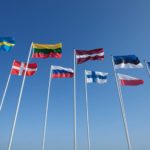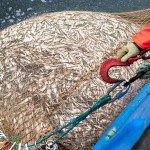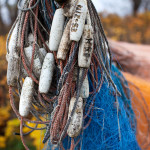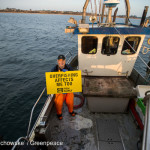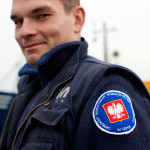News
April 28, 2017
Risky business in governance
Ecosystem Based Management (EBM) has evolved from an idealistic concept to a driver for dynamic oceans governance. An iteration of EBM is also defined in the EU Common Fisheries Policy, yet implementation continues to stall. Roland Cormier at Helmholtz-Zentrum may have just the answer.
April 7, 2017
German Presidency of BALTFISH drawing to a close with discussions on discards
In what will likely be the final meeting under the German Presidency, the BALTFISH Forum and High Level Group are meeting in Berlin on 26-27 April.
March 31, 2017
BSAC established new working group for ecosystem based management
The Baltic Sea Advisory Council, BSAC, 28 March established a sub working group that will produce advice on the implementation of the Ecosystem Approach to Management, EAM. At the first meeting of the sub group, which will report to the demersal working group, Nils Höglund from Coalition Clean Baltic was elected Chair.
March 13, 2017
How can science help to implement the Landing Obligation?
As part of the DiscardLess, a project providing advice on the landing obligation (LO), a conference was held in association with the FAO to discuss the role of science. Strategies outlining tactical and technical solutions to minimise unwanted catches were presented as well as experiences from other countries that have implemented discard bans
March 7, 2017
Biomass in focus – implementing the CFP and reaching Bmsy
At the European Parliament hearing on “the state and development of the biomass of fish stocks managed by the CFP” the Commission reaffirmed the commitment to manage fish stocks above Bmsy.
March 1, 2017
Systemic dysfunction makes BSAC vice-chair resign
Edward Stern, FishSec Policy Officer, has stepped down from his elected position as vice chair of the Baltic Sea Advisory Council (BSAC). FishSec Director Jan Isakson will remain in BSAC as the FishSec representative. Edward will continue working with FishSec in other capacities.
February 28, 2017
BALTFISH established as a permanent ministerial forum
As a conclusion to its placement under the EU Strategy for the Baltic Sea Region (EUSBSR), BALTFISH has produced a final report.
February 23, 2017
Commission asked by NGOs to intervene and protect threatened western Baltic cod stock
Fishing for cod in the western Baltic Sea is prohibited during the spawning season, which is all of February and March. However, the German administration allowed for a new flatfish fishery with a permissible 10% cod bycatch during the closed period. Denmark then followed suit. As a result there is now increased fishing pressure on a stock that is below the lowest biomass reference point and has been overfished for many years.
February 7, 2017
Monitoring, control and enforcement of Baltic Sea discard ban to be reviewed
A joint meeting with representatives from BSAC, BALTFISH and EFCA will be held in Hamburg, Germany, March 9, to review the monitoring, control and enforcement of the landing obligation that entered into force 1 January 2015 in the Baltic Sea. Still, one out of four cod caught in the Eastern Baltic stock was thrown back dead in the sea during 2015, amounting to 18 million individuals, according to ICES[1].
February 7, 2017
STECF gives DFPO rebuff on spatial fisheries closures
Over the past year the Danish Fishermen’s Producer Organisation, DFPO, has successfully been advocating to open up the western Baltic cod fishery during February and March. Their main argument has been a lack of scientific evidence that closures has a positive effect on the fish stocks, but without providing such data. Now The Scientific, Technical and Economic Committee for Fisheries (STECF) concludes that spatial closures benefit both increase spawning stock biomass and decrease fishing mortality.

